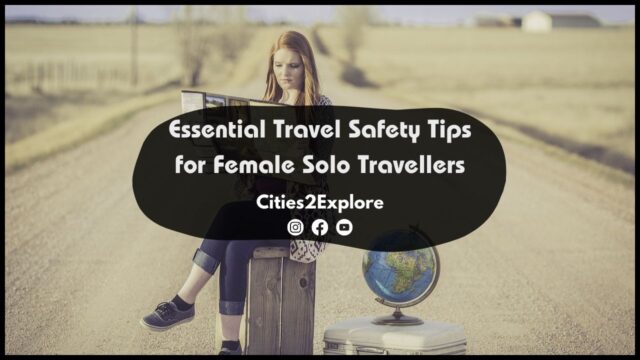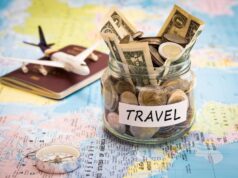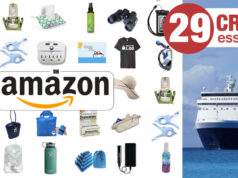In this article, we will be discussing some essential safety tips for solo travelers, so you can feel confident and secure during your adventures. Whether you’re planning a solo trip or have already embarked on one, we’ll cover various aspects such as personal safety, transportation, accommodation, and emergency preparedness. By the end of this article, you’ll have valuable knowledge to help you navigate and enjoy your solo travels with peace of mind.

This image is property of nomadicyak.b-cdn.net.
Essential Safety Tips for Solo Travelers
Traveling alone can be an exhilarating and rewarding experience. Whether you’re embarking on a solo adventure for personal growth or simply seeking some time to explore new places on your own terms, it’s important to prioritize your safety throughout your journey. With proper research, planning, and awareness, you can ensure a safe and enjoyable solo travel experience. In this article, we will provide you with essential safety tips that will help you navigate your solo trip with confidence.
Research and Planning
Choosing Safe Destinations
When planning your solo trip, it’s crucial to choose destinations that prioritize safety. Look for countries or cities that have a low crime rate and a positive reputation for solo travelers. Research online and read travel blogs or articles to gather insights about the experiences of other solo travelers in those destinations. By opting for safer locations, you can significantly reduce potential risks during your trip.
Checking Travel Advisories
Before finalizing your travel plans, it’s essential to check travel advisories issued by your government or reputable travel agencies. These advisories provide important information regarding the safety and security situation in various countries and regions. Familiarize yourself with any potential risks or dangers associated with your chosen destination and make informed decisions based on the travel advisories provided.
Researching Local Customs and Laws
Every country has its own unique customs and laws that shape its culture. It’s important to research and familiarize yourself with the local customs and laws of your destination beforehand. Be respectful of cultural norms, dress appropriately, and avoid behaviors that may offend locals or violate local laws. This will not only enhance your travel experience but also help you blend in and avoid unnecessary attention.
Planning a Detailed Itinerary
Creating a detailed itinerary before your trip will keep you organized and ensure that you have a clear plan for each day. Share your itinerary with a trusted friend or family member so that they have a general idea of your movements. While it’s important to have a plan, be flexible enough to accommodate unexpected detours or changes. Remember to prioritize your safety and adjust your itinerary accordingly.
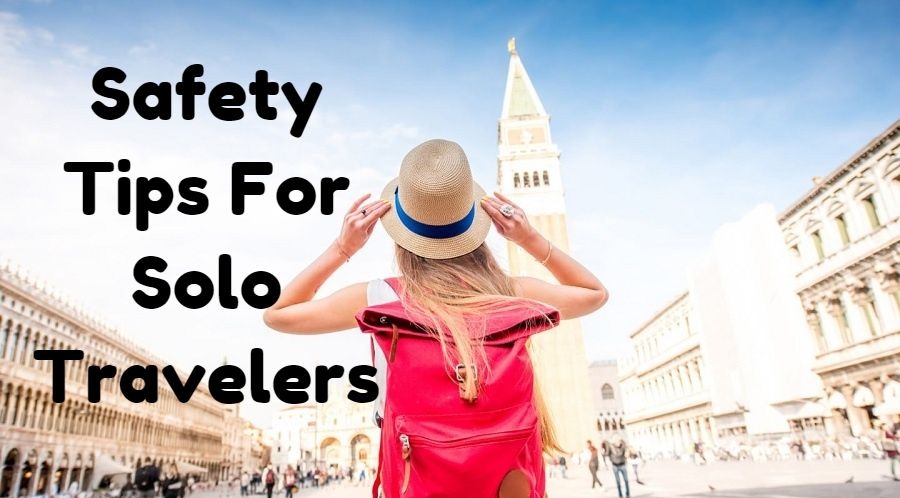
This image is property of tds.indianeagle.com.
Packing and Security
Packing Light and Smart
When traveling alone, it’s best to pack light to avoid the hassle of carrying heavy luggage. Pack versatile clothing items that can be mixed and matched, and consider clothing options that are appropriate for the local culture. Avoid overpacking unnecessary items, as it can make you a potential target for theft. Additionally, ensure that your luggage is sturdy and secure, with reliable locks.
Securing Valuables and Important Documents
Taking precautions to secure your valuables and important documents is crucial when traveling solo. Invest in a secure money belt or passport pouch that can be worn discreetly under your clothing. Keep copies of your important documents, such as your passport and travel insurance, and store them in a secure cloud storage or email them to yourself. This will ensure that you have access to these documents even if your physical copies are lost or stolen.
Using Safety Locks and Security Measures
When it comes to securing your belongings in accommodations, always utilize the safety features available to you. Lock your doors and windows at all times, even when you are inside. If your accommodation provides a safe, use it to store your valuables when you are not carrying them with you. Additionally, consider using a portable door alarm or safety wedge to provide an extra layer of security and peace of mind.
Staying Connected and Informed
Informing Friends and Family of Travel Plans
Before embarking on your solo trip, make sure to inform your trusted friends and family members about your travel plans. Provide them with your itinerary, including the details of your flights, accommodations, and any activities you have planned. Regularly update them about your whereabouts during your trip. This will not only keep them informed but also provide you with a support system that knows your general location and activities.
Registering with Local Embassies or Consulates
Registering with your country’s embassy or consulate in your designated destination is an additional safety measure that solo travelers should consider. This will allow local authorities to locate and assist you if any emergency or crisis situation arises. Registering can usually be done online and is a simple process that can provide you with extra peace of mind during your travels.
Downloading Safety Apps and Emergency Contacts
In today’s digital age, technology can be a valuable tool for solo travelers. Utilize safety apps that provide features such as emergency alerts, local maps, and the ability to share your location with trusted contacts. Download and save important emergency contacts, such as local police or emergency services, on your phone for easy access. These resources can provide you with valuable assistance in case of an emergency or when in need of immediate help.

This image is property of cities2explore.com.
Blend In and Be Aware
Dressing Appropriately for the Culture
One of the most effective ways to blend in and respect local customs is by dressing appropriately for the culture you’re visiting. Research the local dress codes and pack clothing that respects these norms. By dressing modestly and respectfully, you will not only show cultural sensitivity but also minimize the chances of attracting unwanted attention.
Avoiding Flashy Jewelry and Displays of Wealth
While it’s natural to want to look your best while traveling, it’s important to avoid flashy jewelry or displays of wealth that may make you a target for theft or scams. Keep your valuables discreet and avoid drawing unnecessary attention to yourself. This will help protect your personal safety and belongings throughout your journey.
Staying Alert and Observant of Surroundings
Remaining alert and observant of your surroundings is essential for your safety during solo travel. Avoid getting lost in your own thoughts or being too engrossed in your phone. Pay attention to the people around you and be aware of any suspicious activities. If you feel uncomfortable or sense danger, trust your instincts and take the necessary precautions to remove yourself from the situation.
Transportation Safety
Using Licensed and Reliable Transportation
When it comes to transportation, prioritize licensed and reliable options. Research and identify trusted taxi services, rideshare companies, or public transportation options in advance. Avoid accepting rides from unauthorized or unmarked vehicles, especially at night or in unfamiliar areas. By utilizing reputable transportation services, you can enhance your safety while traveling solo.
Avoiding Unsafe Public Transportation at Night
While public transportation can be a convenient and economical mode of travel, it’s important to exercise caution when using it at night, especially in unfamiliar areas. Be mindful of your surroundings and avoid deserted or poorly lit areas. If possible, opt for alternative transportation options such as taxis or rideshares during late hours.
Keeping Important Information about Routes
Before leaving your accommodation, have a clear understanding of the routes you will be taking and the general direction of your destination. Familiarize yourself with local landmarks or key points of interest that can help you navigate. Having this information readily available will ensure you can confidently move around and minimize the chances of getting lost or finding yourself in potentially unsafe areas.
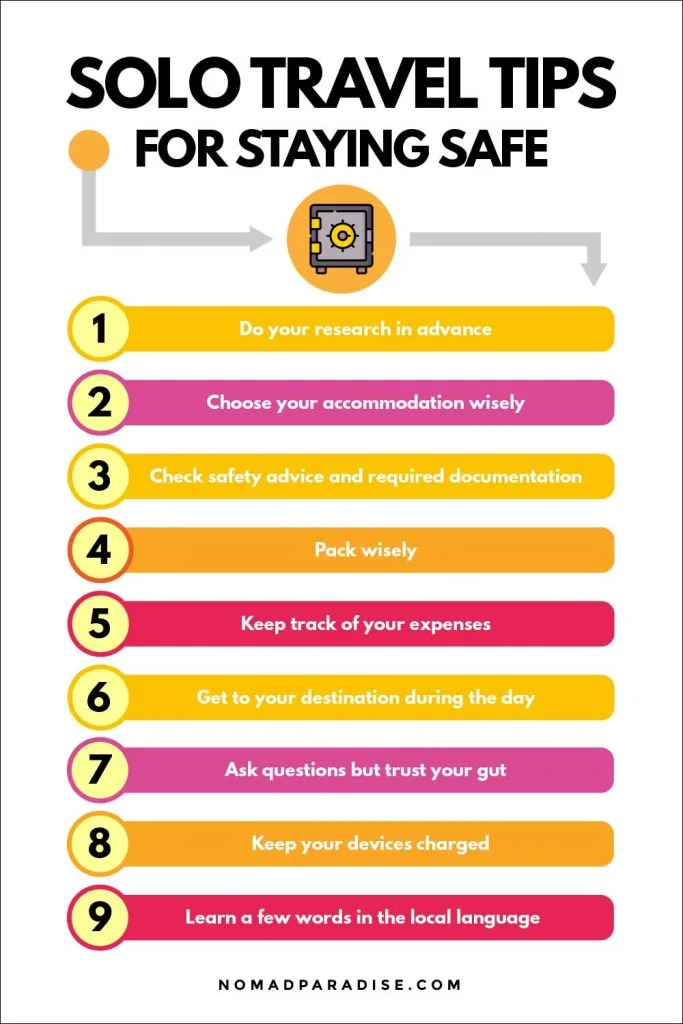
This image is property of nomadparadise.com.
Accommodation Safety
Choosing Safe and Well-Reviewed Accommodations
When selecting accommodations for your solo trip, always prioritize safety and choose accommodations that have positive reviews in terms of security. Look for accommodations that have reliable locks on doors and windows, reception or security staff available 24/7, and well-lit common areas. Reading and considering previous guests’ experiences can give you valuable insight into the safety standards of a particular accommodation.
Checking Doors and Windows for Security
Upon arrival at your accommodation, take a few moments to inspect the doors and windows of your room for any potential security issues. Ensure that they function properly, lock securely, and that there are no visible signs of tampering. If you notice any concerns, don’t hesitate to request a room change or address the issue with the staff immediately.
Utilizing Hotel Safes and Locks
Most hotels provide in-room safes for guests to store their valuable belongings. Take advantage of this amenity and store your passport, extra cash, and any other valuables inside the safe when you’re not carrying them. Additionally, always lock your room door when inside and consider using a door wedge or travel door lock for extra security while you sleep.
Socializing Safely
Meeting People in Public and Well-Lit Areas
Socializing and meeting new people is an integral part of the travel experience. When interacting with strangers, it’s important to prioritize your safety. Arrange to meet people in public and well-lit areas, such as cafes or restaurants. Avoid going to unfamiliar or secluded locations with individuals you have just met. Trust your instincts and exercise caution when engaging in social activities.
Avoiding Over-sharing Personal Information
While it’s natural to connect with others during your solo travels, it’s important to be mindful of the personal information you share. Avoid disclosing sensitive details such as your full name, accommodation address, or financial information to people you have just met. Protecting your personal information will help safeguard your privacy and security throughout your journey.
Trusting Your Instincts
One of the most powerful tools for ensuring your safety as a solo traveler is to trust your instincts. If a situation or person feels off or raises red flags, listen to your gut feeling and remove yourself from that environment. Your intuition can often sense hidden dangers that may not be immediately apparent. Prioritize your well-being and make choices that align with your comfort and intuition.
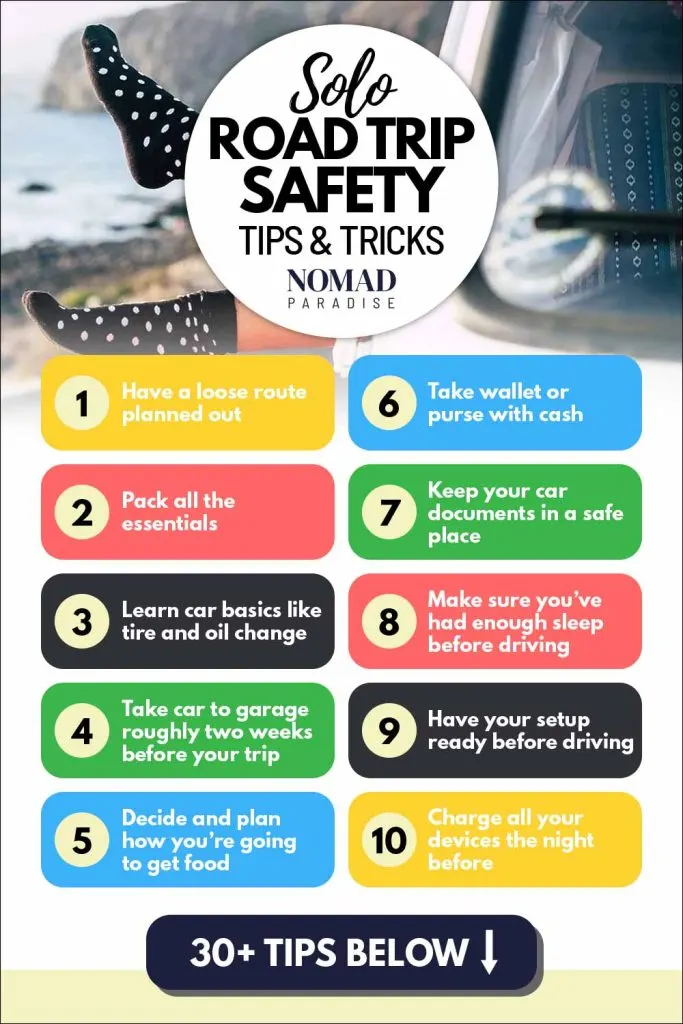
This image is property of nomadparadise.com.
Emergency Situations and Self-Defense
Knowing Emergency Numbers and Local Services
When traveling solo, it’s essential to familiarize yourself with the local emergency numbers and essential services in your destination. Save emergency numbers, such as local police, ambulance, and fire services, in your phone or write them down. Knowing these numbers beforehand will enable you to act promptly in case of an emergency or when seeking immediate assistance.
Learning Basic Self-Defense Techniques
Equipping yourself with basic self-defense techniques can provide you with added confidence and a sense of security. Consider enrolling in a self-defense class or researching simple yet effective techniques that you can practice. Learning how to protect yourself physically can empower you to respond appropriately in potentially threatening situations.
Having a Personal Safety Kit
Carrying a personal safety kit can be highly beneficial for solo travelers. Your safety kit can include items such as a whistle, a mini flashlight, a portable charger, a small first-aid kit, and emergency cash. These items can prove invaluable during unexpected situations and are compact enough to easily fit into your daypack or handbag.
Health and Medical Precautions
Researching Health Risks and Vaccinations
Before traveling, research any potential health risks or required vaccinations for your destination. Consult with a healthcare professional or visit a travel clinic to ensure you have the necessary vaccinations or medications to protect your health. Additionally, pack a small medical kit with essentials such as band-aids, painkillers, and any prescription medications you may require.
Carrying Necessary Medications
If you have any pre-existing medical conditions, ensure that you carry an adequate supply of your medications. Keep medications in their original labeled containers to avoid any confusion or issues at customs or security checkpoints. It’s also wise to carry a prescription or doctor’s note explaining the purpose of the medication, especially if it is a controlled substance.
Securing Travel Insurance
Having comprehensive travel insurance is a fundamental aspect of preparing for any trip. Travel insurance provides coverage for medical emergencies, trip cancellations, lost luggage, and other unforeseen events. It’s important to carefully review the terms and coverage of your chosen policy to ensure it meets your specific needs. Traveling with the peace of mind that comes with adequate insurance coverage will allow you to fully enjoy your solo adventure.
Conclusion
As a solo traveler, your safety should always be your top priority. By being prepared and informed, you can confidently navigate your solo trip, leaving room for exciting experiences and personal growth. Implementing the essential safety tips outlined in this article, from choosing safe destinations to staying connected and aware of your surroundings, will help you enjoy your solo adventure to the fullest while keeping yourself safe. So pack your bags, embrace the freedom of solo travel, and embark on a memorable journey that prioritizes your well-being. Bon voyage!

